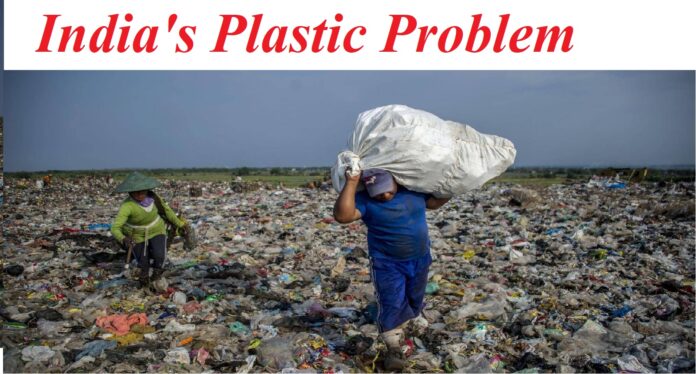India’s growing appetite for plastic is outpacing its ability to manage the resulting waste. While plastic consumption has been increasing at an alarming rate of nearly 10% annually, the generation of plastic waste is surging at over 20%.
Between FY17 and FY20, India’s plastic consumption rose from 13.7 million tonnes (MT) to 19.8 MT. However, the amount of plastic waste generated during the same period increased even more dramatically, from 1.6 MT to 3.4 MT. This disproportionate growth in waste highlights the country’s urgent need for better waste management solutions.
Maharashtra, Gujarat, and Tamil Nadu are the top three plastic waste-generating states, accounting for 38% of the national total. Of the total plastic waste generated, a mere 30% is recycled, with the remainder ending up in landfills or polluting water bodies.
Packaging: The Primary Culprit
Packaging applications are the largest consumer of plastic in India, accounting for 11.5 MT in FY20. Flexible packaging, such as food packets and delivery boxes, contributes significantly to this figure. The construction sector is the second largest consumer, utilizing 2.6 MT of plastic for pipes, cables, and other materials.
Other sectors, including agriculture, automotive, electrical/electronics, and FMCG, also contribute to the demand for plastic. However, the majority of plastic waste is not adequately treated due to challenges in sorting and recycling.
The Way Forward
To tackle India’s plastic problem, the study recommends:
- Strengthening sorting processes: Effective sorting is crucial for both mechanical and chemical recycling.
- Investing in large-scale recycling technology: India needs technology capable of handling mixed and contaminated plastic waste.
- Developing bio-refineries: These facilities could produce bioplastics from plantation waste, offering a more sustainable alternative.
- Promoting bio-based raw materials: While costly, manufacturing plastics from bio-based materials can help reduce environmental impact.
Addressing these issues will require concerted efforts from government, industry, and consumers alike. By investing in better waste management practices and promoting sustainable alternatives, India can reduce its plastic footprint and protect its environment.


